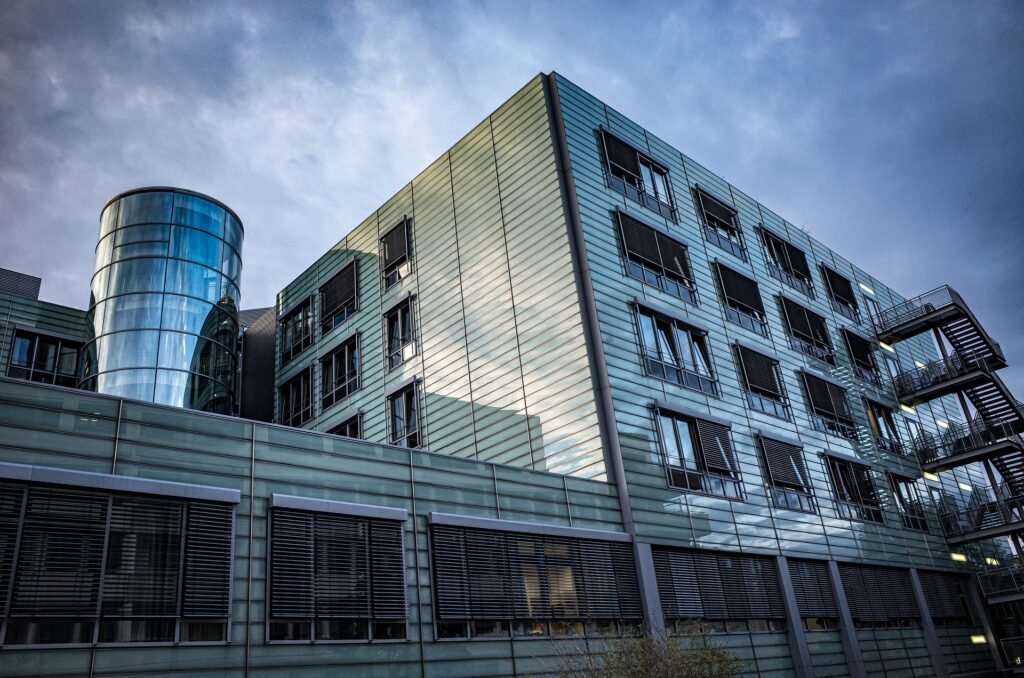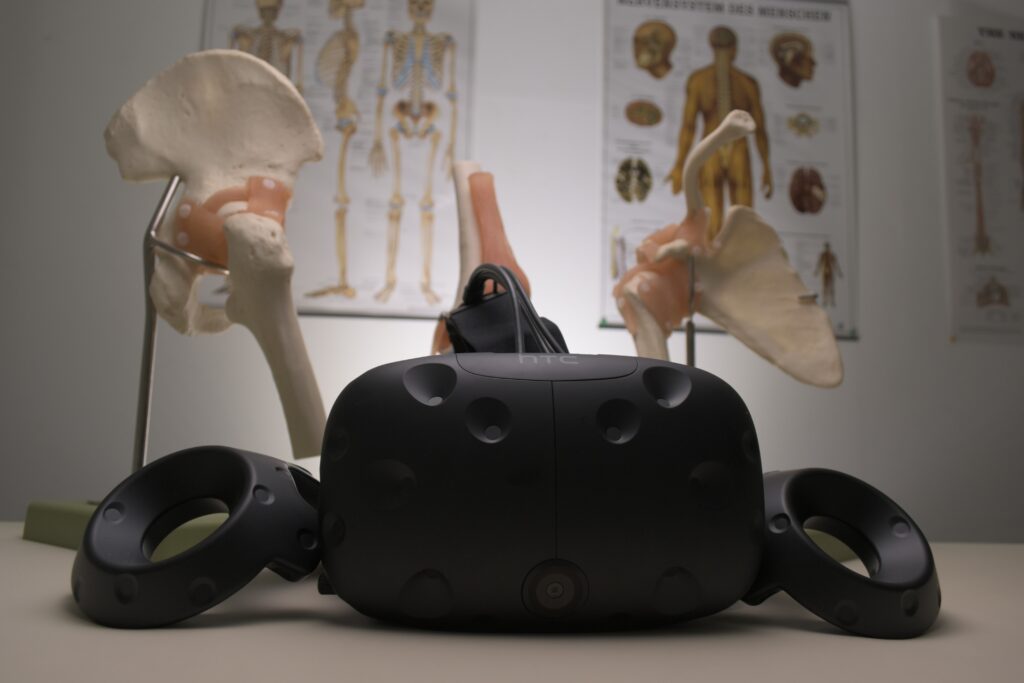
Technological progress has established new potentials in medicine for diagnosis and therapy. The focus here is on imaging diagnostic procedures and intervention techniques. In addition to basic anatomical and physiological knowledge, students in particular must become familiar with the new diagnostic procedures at an early stage and train their practical skills. In this context, virtual reality simulations of organ worlds and pathologies create an innovative basis for improving clinical-student training. In order to exploit this potential, the ENT Clinic of the University Hospital Essen decided to enter into a cooperation with neomatt GmbH. Together, state-of-the-art technologies from the VR/AR field are to be established in the university’s teaching. A comparable teaching offer in medical education does not yet exist in Germany. Therefore, it represents a showcase project for future- and practice-oriented teaching in the state of North Rhine-Westphalia.
The project will familiarize tomorrow’s physicians with the use of modern media within the framework of e-learning. Anatomical, physiological and pathophysiological basics are to be deepened with the LMS and the understanding of individual clinical pictures, therapies and operations is to be improved.

The learning management system can be used with various end devices – students decide for themselves whether they learn with a smartphone, tablet, laptop or a VR headset. Using a VR headset is a special feature that students benefit from. It allows them to drift off into a virtual world and interact with visualized organs. This means that learning takes place on the virtual object, which makes it easy to understand the structure and individual disease processes. The 3D models can be rotated in all directions and viewed from different perspectives. It should even be possible to look inside the organs. Each important component or pathological change can be clarified with micro-learning spots. Various media formats such as text, image, video or audio files can be stored with further information. The virtual environment can thus facilitate the transfer of theoretical anatomy knowledge to individual surgical situations. An understanding of surgical procedures is developed and the recognition and remedying of complications is learned. Through contact with technology, students gain routine and greater confidence in the operating room, which ensures patient safety in the long term. Nevertheless, every successful surgery is a collaborative effort based on effective communication and teamwork. These skills can also be trained in the context of a VR simulation: For example, abnormalities and clinical pictures can be discussed or the next surgical steps can be planned together during a VR simulation.
The result of the cooperation will thus be a learning platform that goes beyond the classic study regulations of medical education. It complements conventional teaching methods and offers deep insights into the functioning of organs or courses of pathologies with virtual reality simulation. State-of-the-art technology is used to impart specialist knowledge in a practical manner and to improve clinical-student training. In the sense of a virtual skills lab, students are trained step by step in their skills and learn teamwork as well as communication skills while working together on learning paths. A great project in which we are very much looking forward to working together!
Matching topics: